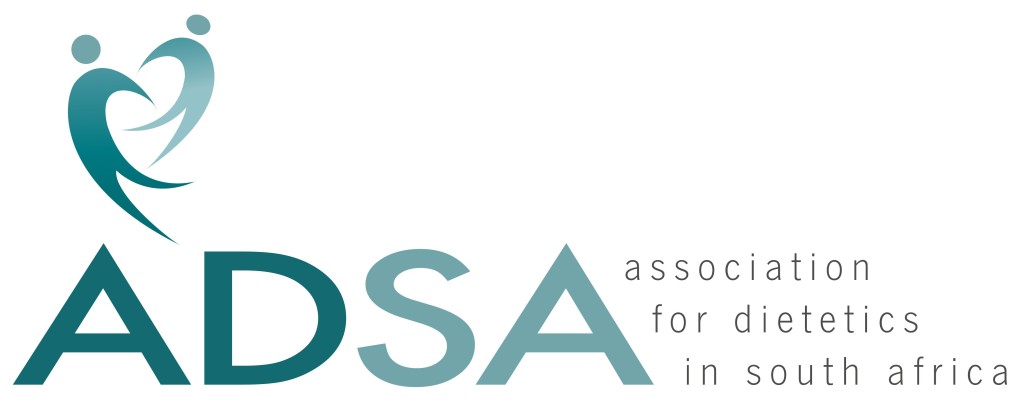 We chatted to registered dietitian Jessica Oosthuizen to find out why she became a dietitian, what being a dietitian means to her, the challenges she faces in her profession and her views on healthy nutrition:
We chatted to registered dietitian Jessica Oosthuizen to find out why she became a dietitian, what being a dietitian means to her, the challenges she faces in her profession and her views on healthy nutrition:
Why did you become a registered dietitian?
I was diagnosed with Type 1 Diabetes when I was just 13 years old. I had always been a competitive swimmer and sportsman at school so healthy eating was always a way of life (although I did have the ultimate sweet tooth as well). After being diagnosed with diabetes, nutrition just became that much more important. Juggling diabetes with school, swimming and being a teenager had it’s up and downs. I became a dietitian because I am passionate about helping children and adults understand diabetes and the role that nutrition plays and I felt that having the personal experience and empathy can make such a difference.
How do you promote a healthy lifestyle as a registered dietitian from day-to-day?
I feel that a healthy lifestyle incorporates more than just nutrition and it includes aspects such as being physically active, practicing mindfulness, decreasing stress as much as possible, smoking cessation and of course following healthy eating principles. I feel very strongly about not being able to blanket the same message to all my patients because everyone is a unique individual and this always needs to be taken in to account. I also try to promote a healthy way of life on social media using my Instagram account dietitian_with_diabetes.
What does being a registered dietitian mean to you?
I like to think that this means that I am respected as a trusted healthcare practitioner. That I am someone who my patients trust to provide them with evidence based scientific information that I am able to translate into easy-to-understand language for the general population.
What in your opinion are some of the biggest nutrition-related health issues South Africa is faced with?
Overweight and obesity is definitely up there and something that I see on a daily basis. This of course increases the risk for a host of diseases such as Type 2 Diabetes, cardiovascular disease, certain cancers, non-alcoholic fatty liver disease and stroke.
If you only had 30 seconds to convince someone to eat healthier, what would you say?
Start with a focus on quality, quantity and frequency!
- Eat not too much, mostly plants
- Include whole grains to ensure adequate fibre to maintain a healthy gut
- Include lean protein sources with a focus on fatty fish to get in your omega 3’s
- Include healthy fats daily such as olives, avocados, nuts, seeds and olive oil
- Don’t forget to drink water – the specific amount will depend on the person but 8 glasses (2 litres) per day is a good goal to aim for
What is your biggest challenge as a dietitian?
Dr Google is definitely right at the top! The general population can find an answer to anything in a matter of seconds on the internet so why would they believe me? Convincing patients that the latest fad diet is not the healthiest way to lose weight, or in fact is just not heathy at all, can sometimes be quite challenging.
What do you think are some of the most important skills or personal traits a dietitian should have?
A dietitian should be non-judgemental, a very good listener and they should not be too quick to give advice without getting all the information from the patient first. We need to have good time management and organisational skills. I also feel that a dietitian should be passionate about the work that they are doing.
How do you handle difficult clients/patients?
I put the ball in their court and try get them to understand the situation. I focus on trying to educate the patient because I often felt that a lack of education is the problem when they’re so set in their ways. I try to negotiate and come to a happy medium where both parties are able to understand and communicate openly and freely.
What is your opinion on fad diets?
There are so many fad diets around and if they are so successful then why are there so many different ones? Yes, of course fad diets will cause weight loss for most people at the beginning because you are creating a severe calorie deficit and often cutting out complete food groups. However the weight regain after stopping the diet is generally more than the weight that has been lost. This is because fad diets:
- Are completely restrictive
- Are unsustainable for most people
- Can be anti-social
- Are unhealthy and unbalanced
- Do not teach you healthy eating habits around food
- Are not individualised
ABOUT
Jessica Oosthuizen RD (SA) obtained a degree in Sport Science from Stellenbosch University and furthered her studies at the University of Cape Town where she graduated with a Bachelor of Sciences Medical Honours Degree in Nutrition and Dietetics.
Jessica is registered with the Health Professions Council of South Africa (HPCSA) and the Health and Care Professions Council (HCPC) in the UK. She is a member of the Association for Dietetics in South Africa and a Vitality Wellness accredited dietitian.
She has experience working in the clinical hospital setting as well as experience with a variety of chronic diseases of lifestyle such as obesity, hypertension and type 2 diabetes.
Being a Type 1 Diabetic herself since the age of 13, Jessica has a special interest in the nutritional management of children and adults with diabetes. She also has a key interest in weight management and eating disorders.
Jessica is passionate about the ever-changing profession of dietetics. She enjoys helping individuals achieve optimal health through nutrition to live their best life as a healthy and happy individual.
To find a dietitian in your area, visit http://www.adsa.org.za/Public/FindARegisteredDietitian.aspx




 We chatted to Registered Dietitian, Jessica Byrne, who is currently undergoing her Masters studies in Therapeutic Nutrition and fulfils the role of chief operating officer for
We chatted to Registered Dietitian, Jessica Byrne, who is currently undergoing her Masters studies in Therapeutic Nutrition and fulfils the role of chief operating officer for 



 We chatted to Neil Stephen,
We chatted to Neil Stephen, 

 Working SA mums are entitled to a minimum of four consecutive months of maternity leave. Many take at least one month of that leave prior to the birth, and then make their return to work when their infants are just around three months old. However, exclusive breastfeeding of an infant from birth to six months is what is recommended as optimal nutrition by the World Health Organisation. Therefore, the only way that working new mums can meet these important health standards is if they can breastfeed or express breast milk for some months at their workplaces.
Working SA mums are entitled to a minimum of four consecutive months of maternity leave. Many take at least one month of that leave prior to the birth, and then make their return to work when their infants are just around three months old. However, exclusive breastfeeding of an infant from birth to six months is what is recommended as optimal nutrition by the World Health Organisation. Therefore, the only way that working new mums can meet these important health standards is if they can breastfeed or express breast milk for some months at their workplaces.




 tion for registered dietitians, and has been committed to serving the interests of dietitians in South Africa for the past 29 years. The Association is made up of a variety of members, from registered dietitians and nutritionists, to community service and student dietitians, international, retired and honorary members.
tion for registered dietitians, and has been committed to serving the interests of dietitians in South Africa for the past 29 years. The Association is made up of a variety of members, from registered dietitians and nutritionists, to community service and student dietitians, international, retired and honorary members.



